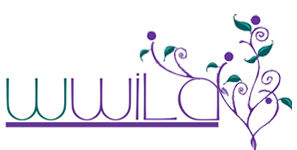Someone has told me they have experienced sexual assault, rape or other types of abuse – What do I do?
- It is common that a person will tell someone they trust when they have been a victim of abuse – this may be a friend, support worker, parent or carer.
- Sometimes people may tell someone straight away, or sometimes people may wait years to tell what has happened.
- Not telling someone may have been the safest thing they could do at the time. The perpetrator may have made threats, or they may not have known anything was wrong.
- It is a complex ethical situation for parents/ carers/ support workers and needs to be undertaken with the utmost compassion and awareness about your role and responsibility.
Safety First
- Are they safe from harm?
- Do they need to seek medical assistance?
- Does the perpetrator still have access to the person?
If the person is still at risk from the perpetrator you can contact the Police straight away or contact the Statewide Sexual Assault Helpline for advice or assistance.
If it was a recent sexual assault or other type of abuse – do they need to be moved out of danger and need medical attention?
They may need support to go to a Queensland Health Sexual Assault service at a hospital to be checked for physical injuries or sexual health concerns. They may also need general medical support.
It is important you explain about why it is important that they get medical treatment so it’s not a scary experience.
If the person has been sexually assaulted recently or in the past and would like assistance, you can contact any of the following for support:
- Contact your GP or 13 Health on ph: 13 43 25 84 for local hospital information.
- Queensland Police – Phone 000 for emergencies, or for non-emergency contact Policelink on Ph:131 444 or Crime Stoppers ph: 1800 333 000
- Statewide Sexual Assault Helpline ph: 1800 010 120
- 1800 Respect ph: 1800 737 732, 24-hour phone or online sexual assault and domestic violence support
- DV Connect ph: 1800 811 811
For a list of sexual assault services click on Sexual Assault Services or phone the Statewide Helpline for your closest sexual assault service on ph. 1800 010 120. Click HERE for a list of other services.
What do I do when they tell me:
Immediate response
- Reassure – Tell them that you are glad they told you, and it was the right thing to do.
- Believe them – It will re-traumatise the person if you question their story or tell them they are wrong.
- Listen – Take time to listen to what they are saying.
- Check safety – see above
- Record – Write it down if possible. It is important to keep an accurate record of what they are saying in their own words. If the person reports the incident to police and you are the first person to whom they have disclosed, you could become a supporting witness, if it proceeds to a legal case. Please note the date, time and place of the conversation, and don’t write any interpretation of what they have said, only their words and any gestures or signs they may have given.
Provide emotional support and Information
- Offer them comfort and emotional support, reassurance, acknowledge how hard it is.
- Do not take over and tell them what to do – give them choices. Let them share what has happened in their own words.
- If it’s a recent sexual assault, rape or physical assault, talk to them about going to the local doctor or hospital to be checked over by a doctor and make sure they have no internal injuries or sexual health issues.
- They may want to go and make a statement to the police – it is their choice. Let them know they can take a supportive person they trust with them. It doesn’t matter if it’s a recent or historical abuse, a person can still report the matter to the police.
- If it is a case of domestic and family violence, you can talk to them about Domestic violence services. Click here on Domestic violence Services for some options.
- Easy read or accessible Information about options needs to be shared with the person so that they understand. Click on Easyread resources for some options.
- Provide them with some information about victim’s support services if they are ready. Go to Services
Police Reporting Options
- Contact Police link 131 444 or look on the Queensland Police Service website. You can also contact the local police station to talk directly to the Child Protection Investigation Unit (CPIU) which conduct 93A video interviews.
- When speaking to police, identify that the person you are assisting has an intellectual disability or any other type of disability.
- People with an intellectual disability have a right to have a 93A video recorded interview when they experience sexual and physical violence and some domestic and family violence. This is done by the CPIU police unit.
- The police will tell you what the next steps are.
- If a supporter goes with the person, it’s important that they are not connected to the incident in any way or the first point of disclosure. You can contact WWILD for that support if its needed.
- Alternate Reporting Options are available if the person is over age 18, wants to report it but is worried or nervous or would like to remain anonymous. For further information, please go to this link: Adult sexual assault | QPS (police.qld.gov.au)
WWILD provides education and training on supporting people with intellectual disabilities in the justice system – Contact Us to inquire.
WWILD has Online training available on this subject. Click on Module 2: Responding to Disclosure of Sexual Violence – WWILD – SVP Brisbane to learn more.

